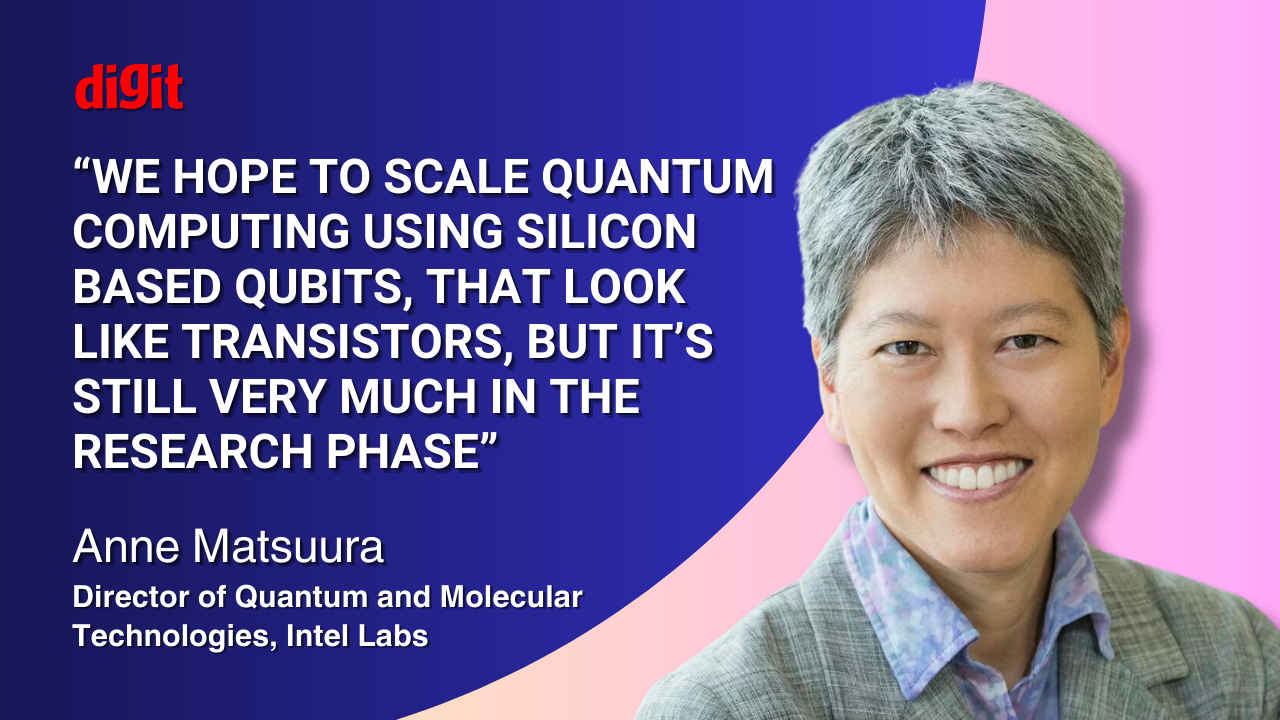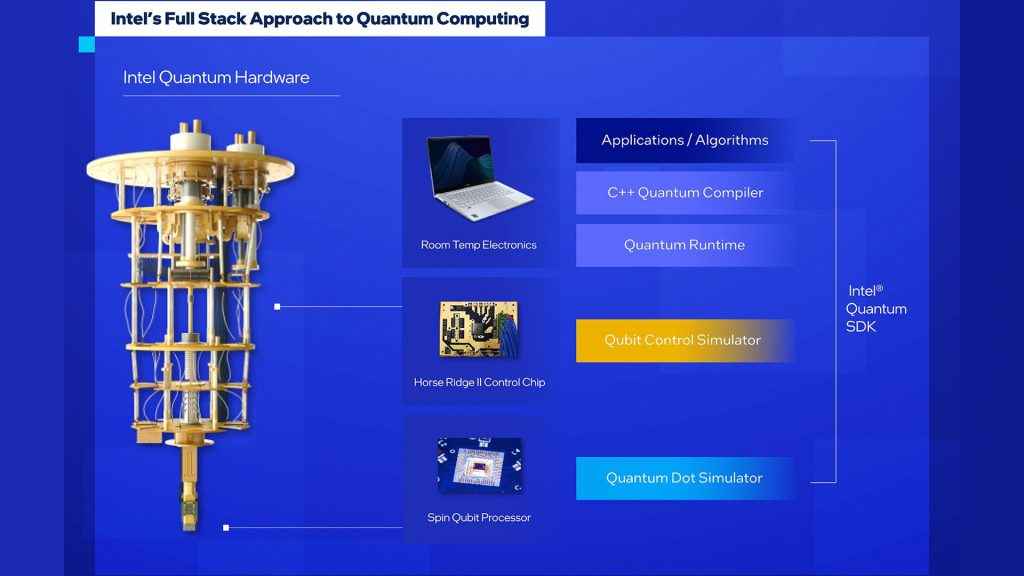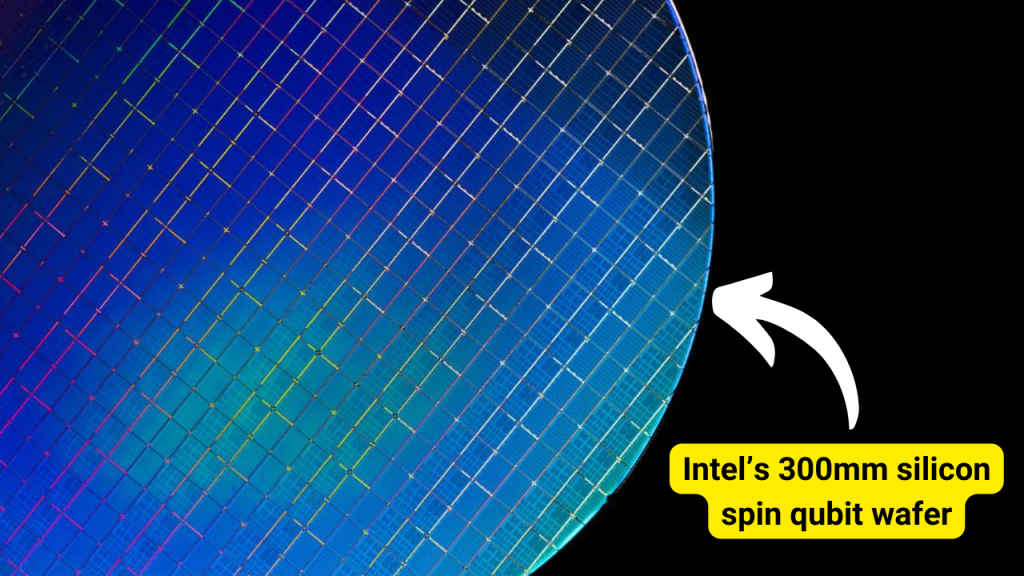Shaping the future of quantum computing: Intel’s Anne Matsuura

In an era where computing boundaries are constantly being redefined, Intel’s Dr. Anne Matsuura is helping craft the blueprint for tomorrow’s technology in a way that’s familiar to many. As the Director of Quantum and Molecular Technologies at Intel Labs, Dr. Matsuura’s trajectory from exploring the magnetic properties of superconductors to steering the course of quantum applications bears testament to a career constantly in pursuit of the cutting edge.
Also read: Intel and IBM: High-performance AI chips to quantum computing breakthroughs
In this interview, Dr Matsuura sheds light on Intel’s 2023 milestones in quantum computing, an overview of Intel Quantum SDK’s leap from beta to its first major release. She also explains how Intel aims to democratise quantum computing by extending an invitation to classical developers to partake in the quantum revolution. Edited excerpts follow:
Q) Intel Quantum SDK’s no longer in beta. What feedback did you receive from users?
Anne: We’ve gotten the feedback that is more like using a real computer. The reason for that is we’ve created a true compiler that’s scalable and meant to be the top of the scaled up version of our qubit chip, the top of the future Intel quantum computer. It’s written in C++ on an industry standard LLVM that we’ve extended with quantum extensions. We also have a Python translator at the frontend of the compiler – so if you prefer to write in Python, it can translate it into a C++ program that’s suitable for our SDK. Our aim is to make this something that will be familiar and less scary for classical developers.

Q) How are devs trained on classical computing collaborating with quantum experts like yourself?
You know, by creating an SDK that is more familiar for classical developers, we’re hoping that that will help them cross that bridge for them so that they’ll be willing to learn more about quantum, want to collaborate with us or with other quantum researchers to develop quantum applications. I think that’s so important for the field right now.
Q) Hurdles in scaling quantum computers to commercial deployments?
Anne: I mean, on the hardware side, there’s a lot, right? Qubits are noisy, some types of qubits are quite large, they have to be in cryogenic refrigerators. Intel’s approach with qubits is we are trying to do what we do best. Basically we’re working on silicon quantum dot spin qubits that look like one electron transistors, so they fit our fabrication process perfectly. We hope that we’ll be able to scale well using this kind of qubit, but it’s still very much in the research stage.
Q) Role of academia and industry collaborations for quantum computing’s progress?
Anne: I think it’s very important, both from a hardware and software perspective. Right now the Intel Quantum SDK is being used a lot at universities. Ohio State and other universities are using the Intel Quantum SDK in their computer engineering departments. Deggendorf Institute of Technology in Munich is also doing a similar thing, they have a master’s program where they have a lot of their students using the Intel Quantum SDK in their thesis projects, right? I’ve been seeing a lot of people using the SDK for Fluid Dynamics. Another example is in the field of computational chemistry for simulation of materials, which is so promising to see.
Also read: Pat Gelsinger interview: Intel’s visionary CEO on future of chipmaking
On our hardware or qubit chip side of the house, with Tunnel Falls and so on, they are working more with the physics departments of universities to get the chip characterised and tested. In a nutshell, these university partnerships are really important – not just for Intel but for the future of quantum overall.
Q) How does your foundational work impact Intel’s quantum journey?
Anne: Yeah, it’s interesting. I was originally working on high temperature superconductivity. As researchers, we were trying to understand how do you build or how do you create a material that has a higher and higher superconducting temperature. So eventually maybe you have resistance less, superconducting wires, power lines at room temperature, right? That was kind of the holy grail. The problem we ran into was how do you simulate those materials? Because it would be great to be able to simulate those materials, that you would be able to intelligently design a material that may superconduct at higher temperatures.
I never dreamed that later in my career I will be working on quantum computers. One of quantum computing’s promising applications will be to simulate those kinds of future materials. And maybe, just maybe we will be able to create a room temperature superconductor, right? Working on Intel’s quantum mission has brought things kind of full circle for me, in terms of what I was doing previously and the impact I could have on the future of discovering new materials.

Q) The appeal of quantum research at a global level and its potential for emerging countries like India?
Anne: In the area I’m working in right now, we just really need smart people and there’s a lot of really smart engineering in India, right? We need to understand what are those quantum algorithms, what are those applications that are going to be really useful for a large-scale quantum machine. The kinds of things that one can do with a simulator. You don’t have to have a cryogenic refrigerator, you don’t have to have all of that, right?
And I think that’s the beauty of simulation, because in simulation everything is noiseless. So you really do want to develop your algorithms in simulation. And I think that we need to have those applications before we end up with the large-scale machine. So more smart people working on quantum computing simulators is only going to accelerate the field of quantum research, which is great news for me.
Q) Do you see any parallels with quantum computing research with neuromorphic computing?
Anne: I think they’re different. Where the neuromorphic computing team at Intel’s already talking about what part is more commercialisable versus what part is more research, it’s still a different story for quantum. For us on the quantum side, everything is still research now. The tricky thing for us is that quantum computing is an entirely new kind of computer, where every piece of the puzzle from component to compiler is entirely re-imagined. And that’s the quantum challenge, I think – far different from neuromorphic computing’s journey.
My team is multidisciplinary–full of academics, physicists, computer engineers, and so it’s a very exciting place to work and learn. But where it differs from pure research is the fact that being at Intel we really need to make something that’s commercializable and something that eventually that people will choose to use. And I think it makes us quantum researchers more realistic, more disciplined.
Jayesh Shinde
Executive Editor at Digit. Technology journalist since Jan 2008, with stints at Indiatimes.com and PCWorld.in. Enthusiastic dad, reluctant traveler, weekend gamer, LOTR nerd, pseudo bon vivant. View Full Profile




